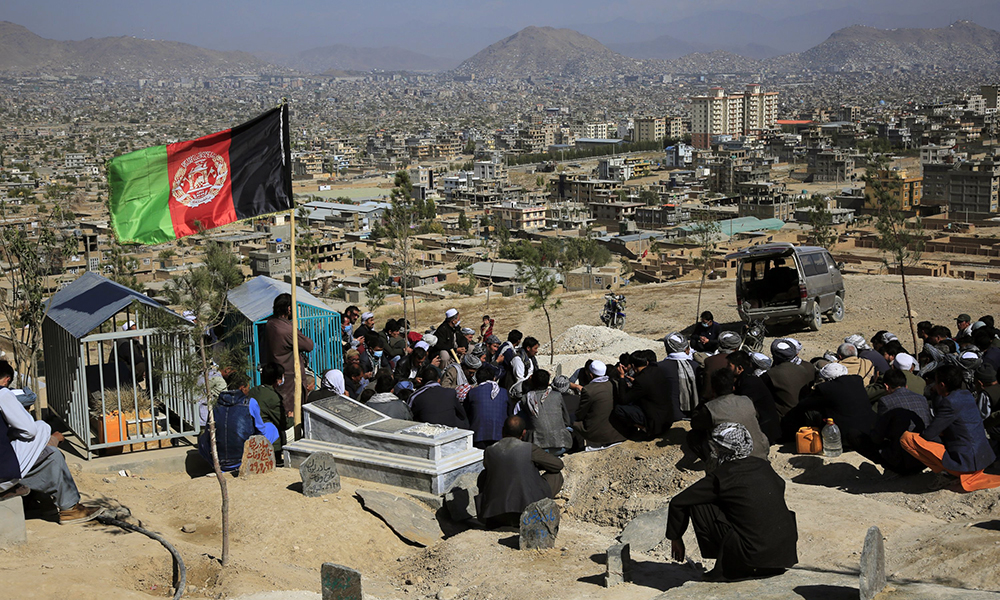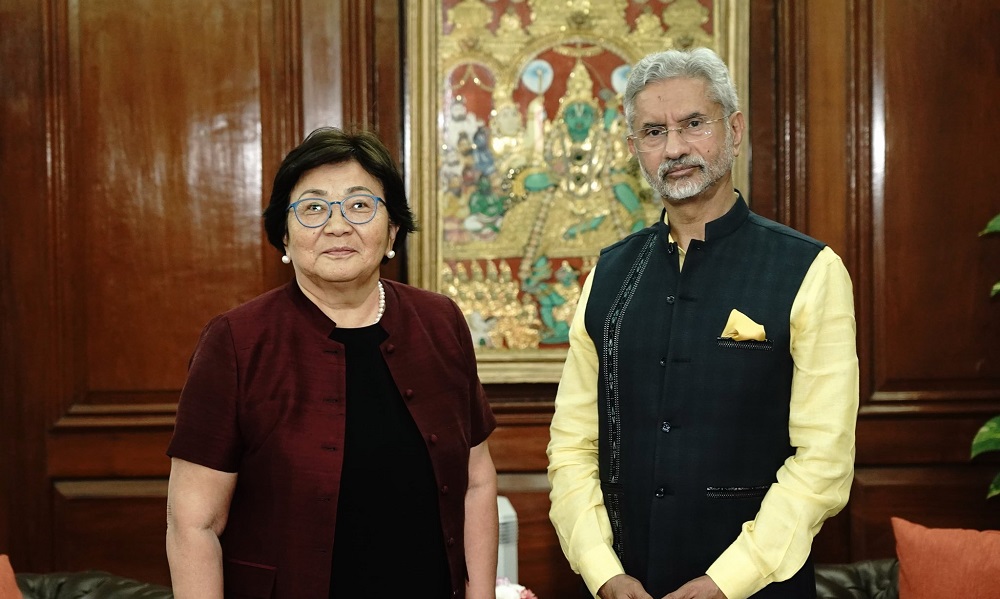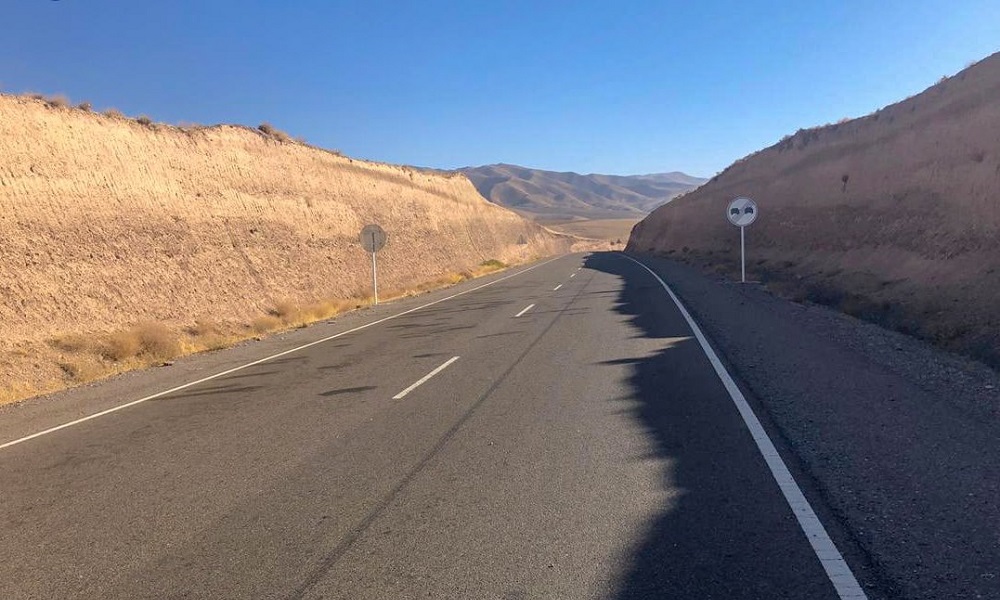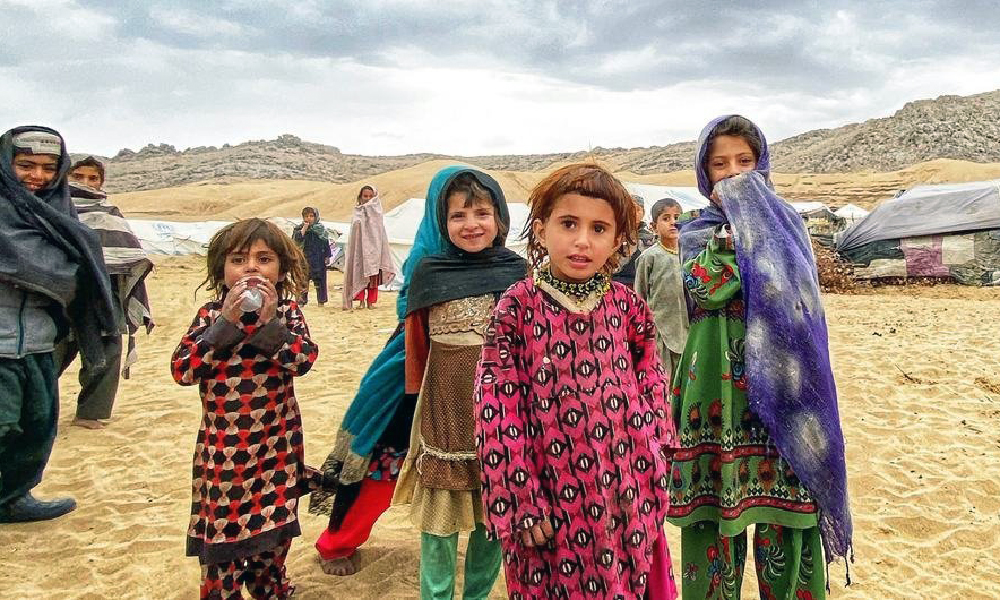Latest News
UNAMA warns of ‘unprecedented’ civilian deaths if violence is not stopped

The United Nations Assistance Mission in Afganistan warned Monday it is concerned about the increasing number of reports of killing, ill-treatment, persecution and discrimination in communities affected by the current fighting and its aftermath.
UNAMA warned that Afghanistan could see the highest number of civilian deaths in more than a decade if the Taliban’s offensives are not stopped.
In its six-monthly report, released Monday, UNAMA also stated the pursuit of a military solution will only increase the suffering of the Afghan people and warned that Afghan troops and pro-government forces were responsible for a quarter of all civilian casualties.
“Unprecedented numbers of Afghan civilians will perish and be maimed this year if the increasing violence is not stemmed,” UNAMA head Deborah Lyons said in a statement released with the report.
“I implore the Taliban and Afghan leaders to take heed to the conflict’s grim and chilling trajectory and its devastating impact on civilians.”
The UN envoy, who is also the head of UNAMA, called on the Taliban and Afghan leaders to,
“Intensify your efforts at the negotiating table, stop the Afghan against Afghan fighting. Protect the Afghan people and give them hope for a better future.”
The UNAMA report stated that much of the battlefield action during the most deadly months of May and June took place outside cities, in areas with comparatively low population levels but stated “the UN is gravely concerned that if intensive military action is undertaken in urban areas with high population densities, the consequences for Afghan civilians could be catastrophic”.
During the first half of 2021, some 1,659 civilians were killed and another 3,254 wounded – a 47 percent increase compared with the same period last year, the UNAMA report said.
The rise in civilian casualties was particularly sharp in May and June – the initial period of the Taliban’s current offensives – with 783 civilians killed and 1,609 wounded, it added.
UNAMA blamed anti-government elements for 64 percent of civilian casualties — including some 40 percent caused by the Taliban and nearly nine percent by Daesh.
About 16 percent of casualties were caused by “undetermined” anti-government elements.
But Afghan troops and pro-government forces were responsible for 25 percent, it said.
UNAMA said about 11 percent of casualties were caused by “crossfire” and the responsible parties could not be determined.
The reported stated that Afghan leaders, with the support of the region and the international community, must heed and answer the calls for peace from the people.
According to UNAMA, women comprised 14 percent of all civilian casualties during this period, with a total of 727 women casualties recorded (219 killed and 508 injured), an increase of 82 percent compared with the first six months of last year.
UNAMA stated Anti-Government Elements were responsible for 57 percent of women casualties, while Pro-Government Forces were responsible for 31 percent, and crossfire/other accounted for the remaining 12 percent of women casualties.
Of the 39 incidents of targeted killings that resulted in women casualties, women appeared to have been the main target in 18 of the incidents, resulting in four women killed and 25 women injured.
The high casualty toll among children was also concerning with 682 child casualties (468 killed and 1,214 injured) documented in this period. This was a 55 percent increase compared to the first six months of last year, UNAMA stated.
This included 622 girl casualties (171 killed and 451 injured) and 1,041 boy casualties (293 killed and 748 injured).
Anti-Government Elements were responsible for 50 percent of all child casualties, while Pro-Government Forces were responsible for 34 percent, and crossfire during ground engagements accounted for 12 percent of child casualties.
“Particularly shocking and of deep concern is that women, boys and girls made up close to half of all civilian casualties,” the report said.
UNAMA also noted a resurgence of sectarian attacks against the country’s Shiite Hazara community, resulting in 143 deaths.
Afghan forces spokesman Gen. Omar Shinwari addressed a news conference in Kabul today & rejected UNAMA’s report on civilian casualties by Afghan forces. He said security forces have retreated from many areas to prevent civilian casualties.
The Taliban has meanwhile rejected UNAMA’s report on civilian casualties and called it “biased and untrue.”
“Nowhere in the last six months have the Mujahideen of the Islamic Emirate deliberately killed civilians or carried out attacks that could have resulted in civilian casualties,” the group said in a statement.
Latest News
UN envoy meets Indian foreign minister to discuss Afghanistan

Roza Otunbayeva, the UN Secretary General’s Special Representative for Afghanistan, met with the Indian Foreign Minister Subrahmanyam Jaishankar in New Delhi and discussed issues related to Afghanistan, it was announced on Thursday.
During the meeting, Otunbayeva thanked India for “its critical humanitarian support and longstanding friendship for the Afghan people” and discussed the importance of regional and international cooperation to address prevailing challenges in Afghanistan, UNAMA said on X.
Jaishankar also said on X that the sides exchanged views on the current situation in Afghanistan.
“Underlined that India has provided wheat, medicines, pesticides and school supplies. Appreciate the role of UN agencies as partners in these endeavors,” he said.
Latest News
Traffic accident leaves one dead, four injured in Herat

Local officials in Herat say one person was killed and four others injured due to a traffic accident in Karukh district of the province.
The accident took place on Thursday night at 8:pm.
The injured individuals have been taken to Herat’s regional hospital by the personnel of Karukh district police headquarters, local officials said.
Latest News
250,000 Afghan children need homes, food, education after returning from Pakistan

In the wake of an announcement by Pakistan that it intends to start Phase Two of deportations of Afghans, Save the Children said Thursday that almost a quarter of a million Afghan children need proper homes, food, and access to education after returning from Pakistan in the past seven months.
In a statement issued by the organization, Save the Children said more than 520,000 Afghans have returned from Pakistan since September last year, after Pakistan said all undocumented foreigners must leave the country voluntarily or face deportation.
Nearly half of all the returnees are children.
A survey by Save the Children of families who have returned to Afghanistan – and the communities who are hosting them – found that nearly all (99%) do not have enough food for the next one to two months.
About three-quarters of returnees and families in host communities reduced portion sizes or restricted the food consumption of adults so small children could eat.
About 40% of returnees and host families surveyed had to borrow food or rely on friends and relatives for at least three days a week – with 13% of returnees and 9% of host families saying they had to get food from others every day.
Almost 8 million children in Afghanistan – or one in three – are facing crisis levels of hunger.
Nearly one in six families live in tents, according to the survey, with most returnees having little or no means to support themselves.
Only a third had managed to bring assets back with them from Pakistan.
Nearly half (47%) said there were no jobs available in Afghanistan, with 81% saying that they do not have any skills that could lead to employment.
Almost two thirds (65%) of children who have returned to Afghanistan have not been enrolled in school. The majority (85%) told Save the Children that they don’t have the necessary documents to register and enroll in school.
In Pakistan, more than two thirds of these children had been attending school.
Arshad Malik, Country Director for Save the Children in Afghanistan, said: “Families are returning to Afghanistan with virtually nothing. Most are relying on relatives or friends to support them – and these communities already have little to support themselves.
“The return of so many people is creating an additional strain on already overstretched resources. Children need support and stability. Many undocumented Afghan children were born in Pakistan – Afghanistan is not the place they call home,” he said.
He added that in addition to the returns from Pakistan, 600,000 Afghans arrived from Iran last year. Also, “families have been forced from their homes by multiple disasters, including the series of earthquakes in Herat and the ongoing drought. Afghanistan is also now home to the second largest number of internally displaced people in the world – or roughly 1 in 7 people,” Malik said.
According to him, Afghanistan not only needs urgent funding from international donors and governments – but also needs long term, community-based solutions to help all displaced Afghans rebuild their lives.
-

 Sport4 days ago
Sport4 days agoACL fever grows as fixtures finalized
-

 World4 days ago
World4 days agoUS will not take part in any Israeli retaliatory action against Iran
-

 Latest News4 days ago
Latest News4 days agoOver 50 people dead in traffic accidents over Eid
-

 Latest News4 days ago
Latest News4 days agoUS identifies Kabul airport suicide bomber
-

 Business4 days ago
Business4 days agoAfghanistan-Kazakhstan chamber of commerce opens in Herat
-

 Latest News4 days ago
Latest News4 days agoGood rains enable DABS to increase power production in Kabul
-

 World3 days ago
World3 days agoIsraeli military vows response to Iran attack as calls for restraint mount
-

 Latest News3 days ago
Latest News3 days agoPakistani police give Afghans in Balochistan one day to leave
























